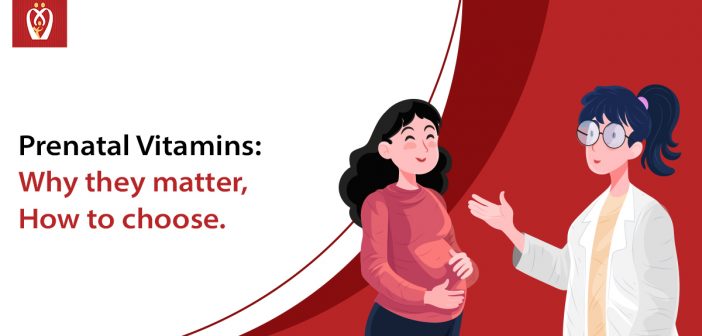One of the simplest things you can do to promote a healthy pregnancy is to take a daily prenatal vitamin. When paired with a well-balanced diet, prenatal vitamins can help ensure that you and your baby get the nourishment they need at every stage of pregnancy. So you pile colourful veggies, lean proteins, complete grains, and healthy fats on your plate. But do you really need to take a prenatal vitamin if you’re trying to conceive?
While you should strive to acquire all of your nutrients through food, even the healthiest eaters may not receive all they require — and it’s always essential to have a backup plan while you’re growing a little one inside you. (Plus, in a few months, that kale salad might not sound so appealing.)
“Prenatal vitamins can offer you that extra assurance that you’re getting enough vitamins and minerals to keep you healthy,” explains Shellie Hawk, CNM, a certified nurse-midwife. They’re made with safe doses of essential nutrients that pregnant women require. “You don’t want to overload on specific vitamins,” she explains, “so taking it in the form of a prenatal helps you stay in the safe range.” “If you require additional iron or folic acid, your healthcare provider will advise you.”
What are the benefits of taking prenatal vitamins?
You require more folic acid and iron during pregnancy than usual. This is why:
- Folic acid is a nutrient that aids in the prevention of neural tube abnormalities. These are the significant brain and spinal cord abnormalities in the foetus. Therefore, you should start taking extra folic acid at least three months before you plan to get pregnant.
- The placenta and the foetus both benefit from iron. Iron aids in the production of blood, which provides oxygen to the foetus. Iron also aids in the prevention of anaemia, a disorder characterised by a low number of healthy red blood cells in the blood.
Which prenatal vitamin is the most effective?
Prenatal vitamins can be purchased over-the-counter at almost any pharmacy. However, your doctor may advise you to use a specific brand or leave the decision to you.
Look for a prenatal vitamin that contains calcium and vitamin D in addition to folic acid and iron. They aid in the development of the teeth and bones of the newborn. A prenatal vitamin that contains vitamin C, vitamin A, vitamin E, B vitamins, zinc, and iodine may also be advantageous.
In addition, depending on the circumstances, your health care practitioner may recommend larger doses of some nutrients. For example, suppose you’ve had a baby with a neural tube defect. In that case, your doctor may prescribe taking a supplemental folic acid supplement containing a larger dose — such as 4 milligrammes (4,000 micrograms) — before and throughout any subsequent pregnancies.
However, in general, avoid taking more prenatal vitamins or multivitamins than you require regularly. High amounts of some vitamins may be dangerous to your baby. Extra vitamin A, for example, could harm your baby if taken during pregnancy.
Is there anything else I should be concerned about?
Omega-3 fatty acids, a type of fat found naturally in many kinds of fish, aid in developing a baby’s brain. However, suppose you don’t consume fish or other foods high in omega-3 fatty acids. In that case, your doctor may recommend omega-3 fatty acid supplements in addition to prenatal vitamins if you don’t eat fish or other foods high in omega-3 fatty acids.
What is the best time to begin taking prenatal vitamins?
Prenatal vitamins should ideally be taken before conception. Taking a prenatal vitamin daily is recommended for women of reproductive age. This is because the neural tube, which eventually becomes the baby’s brain and spinal cord, develops during the first month of pregnancy, possibly before you even realise you’re expecting.
Are there any side effects of using prenatal vitamins?
The iron in prenatal supplements can cause constipation. To avoid constipation, take the following steps:
- First, drink a lot of water.
- Second, increase the amount of fibre in your diet.
- Third, as long as you have your health care provider’s permission, incorporate physical activity into your regular routine.
- Finally, consult your doctor regarding the use of a stool softener.
If these suggestions don’t seem to be working, talk to your doctor about other choices.
What we can do for you
In addition to helping you feel supported throughout your pregnancy journey, Nurturey PinkBook is now ready to take another vital task off your plate. With the launch of our carefully curated Pregnancy Nutrition Bundle, we’re aiming to ensure you have one less thing to worry about! This affordable box has been created to aid ongoing nutrition without being confused about the required intake of supplements.
Where can you order this box?
Our Nutrition Bundle is available on our Nurturey PinkBook app. Downloading the app will not only facilitate placing the order but also give you access to some exciting app features.
Our features include intuitive tools to help you navigate the journey of your pregnancy and child’s health.







